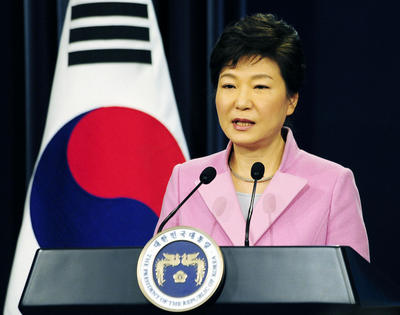Both countries have acknowledged their commonalities — as leading Asian economies with thriving democratic politics and geographic proximity, cultural similarities, economic interdependence, and shared security interests as American allies — and thus bilateral cooperation is expected to produce enormous benefits, not only for the two countries, but for the whole region as well.
On the dark side, however, their improved relationship has been dotted with sporadic discontent, rhetorical frictions and diplomatic confrontations caused by disagreements about the small Dokdo/Takeshima islands and the history of the early 20th century. In Seoul especially, outbreaks of territory or history-related frictions with Tokyo have readily engulfed the relationship. Thus policy makers have tried to manage the explosiveness of bilateral tensions by taking their time or using delicate diplomatic techniques to mitigate the public’s nationalist sentiment.
The history of confrontation between Japan and South Korea, however, does not help explain the lingering absence of a bilateral summit or the downward spiral of relations for a full year under the new leadership on both sides. Most incoming South Korean governments since democratisation in the late 1980s have organised a summit with Japan (along with the United States) early on, as a sort of kickoff to their diplomatic activities. The Park Geun-hye government has deviated from this path. Amongst a flurry of rightist rhetoric by the Shinzo Abe administration, Park visibly hesitated to hold a summit with her Japanese counterpart and has maintained this stance for a full year.
She even refused to meet with Abe on the sidelines of multilateral dialogues, such as APEC, ASEAN+3 meetings and the East Asia Summit, and stated that ‘if Japan continues to stick to the same historical perceptions and repeat its past comments, then what purpose would a summit serve? Perhaps it would be better not to have one’. It is unlikely that Japan’s right-wing politicians will change their views of history or that Japan will renounce its claim to sovereignty over the islets to satisfy the South Korean public. Usually, the last resort for resolving such diplomatic strife between the two nations has been the quiet mediation of the United States. But attempts by US officials in Seoul, including the defence minister, Chuck Hagel, in September, and the vice president Joe Biden in December 2013 have been to no avail.
So how is Park’s stubbornness toward Abe to be explained? Underlying the worsening history and territorial frictions is a loss of trust. While pundits tend to blame a series of assertive policies by the Japanese — including the country’s military build-up, its tightening alliance with America, attempts at constitutional revisionism vis-à-vis the Sino–Japanese rivalry, and most recently Abe’s visit to Yasukuni Shrine on 26 December — South Koreans suspect a looming revival of pre-war militarism. Repeated rightist comments on historical and territorial issues are seen as the outward manifestation of such ambitions. Whereas South Korea’s rapprochement with China is motivated by a desire to manage the North Korean nuclear issue, Japan casts a suspicious eye on the South’s relationship with China in the coming G2 age.
More troubling is that South Korean policy makers seem to have reassessed the strategic value of maintaining strong relations with Japan, notwithstanding their claims to the contrary. While South Korea’s main interests in Japan have resided in the economic sphere, the overall economic importance of the latter to the former is gradually declining. Their shared political and security interests — as Washington’s common allies — have also been diluted by Japan’s weakening role in the North Korean nuclear talks. Tokyo’s persistence in raising the seemingly irrelevant abduction issue during the Six-Party Talks has undermined its image as a reliable partner in the effort to mitigate North Korea’s serious nuclear threat. Japan’s expectation that South Korea would side with its hard-line policies to check the rise of China are seen as onerous limitations on South Korean policy makers, who are desperately seeking the cooperation of China to solve the nuclear issue.
Yet domestic politics also matter. Numerous opinion polls have proven that Park’s political support derives mainly from her diplomatic achievements, including her robust attitude toward Japan. A full recovery of bilateral relations will require stronger mutual trust, recognition of shared interests and, more fundamentally, a deep understanding of each other’s national strategies. Politicians on both sides should not take advantage of each other for domestic political purposes. Indeed, escalating regional tensions require effective and functioning South Korea–Japan cooperation. Without this, any talk of regional stability, prosperity or progress will ring hollow for years to come.
Keeseok Kim is Professor of comparative politics and Japanese political economy at the Department of Political Science, Kangwon National University.

